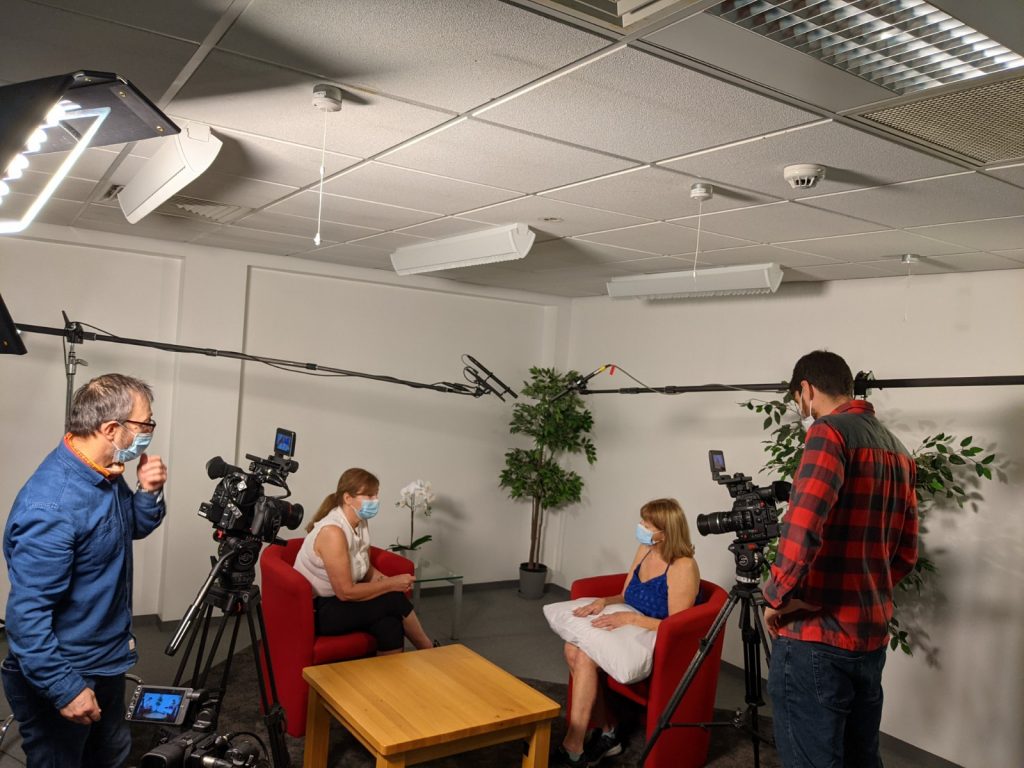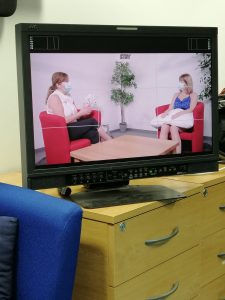
How to self-examine for tender and swollen joints: developing a training video for people with rheumatoid arthritis
By Dr Charlotte Sharp, Academic Clinical Lecturer in Rheumatology, who led the development of a video to train people with arthritis to self-examine for tender and swollen joints.
The coronavirus pandemic has led to an explosion in the amount of remote or virtual care conducted across the health service. This creates challenges for healthcare professionals looking after people with rheumatoid arthritis (RA). Standard practice was for healthcare professionals to examine people with arthritis in person, but we now have to rely, to some degree, on patients’ descriptions of their own joints. The number of tender and swollen joints a person has is hugely important because it drives clinical decision making.
Building a clear picture: the REMORA app
Even before remote consultations became so widespread, there were challenges in ensuring that healthcare professionals were able to form an accurate picture of disease activity in people with RA. In the existing model of care, patients may go for more than 6 months between clinic visits. These long periods make it difficult for people with arthritis to remember the ups and downs of their RA. The REMORA (REmote MOnitoring of Rheumatoid Arthritis) app aims to address this issue, by asking people with RA to track their disease activity over time, including noting down the number of tender or swollen joints they have on a weekly basis. This builds a much clearer picture of their disease, over and above the snapshot they are able to provide on the day they are seen by healthcare professionals.
Developing a video for self-examination of tender and swollen joints
As part of the supporting materials for people using the REMORA app, we planned to develop a video to train them how to examine their own joints. The video’s development coincided with the acceleration in virtual care, making it even more relevant. Whilst it was developed with the primary aim of supporting people with arthritis to conduct remote monitoring, we very much hope that the video will also support remote consultations and help people with arthritis to better understand and self-manage their arthritis, and have shared decision making conversations with their clinicians.
Mobilising knowledge: putting the learning into practice
From a personal perspective, leading the development of this video was an opportunity I couldn’t miss. I am passionate about the potential for the REMORA app to enhance shared decision making between people with RA and their clinicians. The chance to develop a video to support the app came at a great moment, with the pandemic accelerating digital development, including the recent launch of the British Society for Rheumatology ePROMS platform. This is a new platform developed to collect a range of well-established patient reported outcome measures (PROMs) for all patients with rheumatological conditions across the UK. My recently completed PhD studied the development of products like this, trying to understand how best to ‘mobilise knowledge’, or get it into practice. Key findings included that such products were likely to be used more if they had a clear need, aim and audience, which I believe this video has, so it was brilliant to be able to put the learning from the PhD into practice.
Incorporating patient perspectives every step of the way
Our patient and public involvement and engagement (PPIE) group were very clear that a video which included a patient being coached in how to examine their joints was needed, to fill a current gap. The idea came from this group, and they fed into the project on a number of occasions, advising on the outline, content of the storyboard, frequently asked questions, images, and commenting on the first edit. Their suggestions were incorporated wherever possible, and where not possible, we tried to explain why this was the case.

Training patients and supporting clinicians
The video features REMORA’s PPIE Lead, Karen Staniland, who has rheumatoid arthritis. Karen co-wrote the script and was a more than equal member of the core project group. Tricia Cornell is an experienced Rheumatology Consultant Nurse who coaches Karen in the video in a friendly and accessible style. Although the video is aimed at people with arthritis, I hope that it might also help persuade clinicians who are unsure whether patients will be able to accurately self-examine for tender and swollen joints, that with training and support, they can become very accomplished at doing so. I would suggest that, with the right support, self-examination can be really helpful in supplementing clinical examinations by healthcare professionals, where appropriate, rather than replacing clinician examinations.
Challenges and lessons learned
Filming in December 2020 during the COVID-19 pandemic came with its own challenges. We were confined to remote meetings in the planning stages and gained special permission to film on campus, given that Manchester was subject to Tier-3 restrictions at the time. In hindsight, we were very lucky to have fitted this in between two national lockdowns! We all wore medical face masks, used lots of hand sanitiser and propped doors open to keep the flow of air through. Tricia filmed one section without a mask on, when everyone was safely away in another room. We wonder whether the video will age more quickly because of the use of masks, and are concerned about the impact of masks on communication. The video is supported by text on-screen and subtitles, and we hope to develop audio in other languages. We are keen to evaluate the video through our survey and perhaps film it again without masks, if and when possible. I hope that having had a genuine and meaningful collaboration with people who have rheumatoid arthritis underpinning the video’s development from conception to dissemination means that it is relevant and useful to people with arthritis, and the clinicians supporting them. The only way we can find out whether that is the case is through people watching it and giving feedback, so please spread the word!
Watch the video
Please feed-back on the video using this survey. We will use the data collected in the survey to understand whether the video is felt to be helpful, and to understand how we might improve it in future.


0 Comments